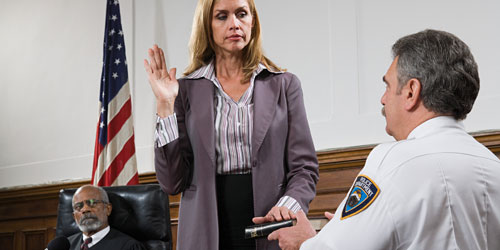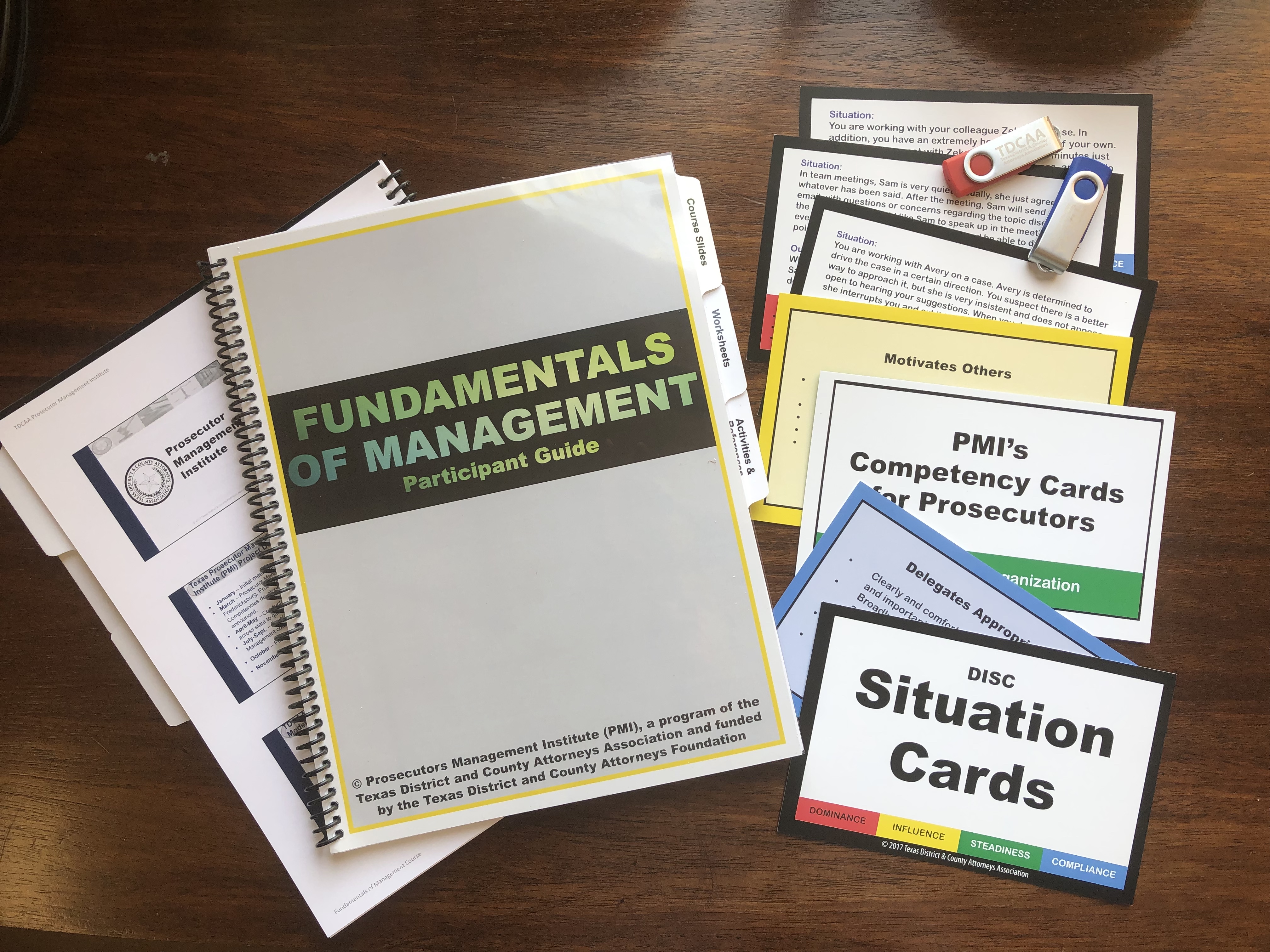New year, same as the old year. When does this ride end? We’re ready to get off. #sigh
SCOTX COVID-19 extension
While many local courthouses scale back or cancel in-person proceedings due to the latest Omicron wave, the Texas Supreme Court issued Emergency Order No. 47 last week to continue and extend prior guidance for local courts regarding pandemic protocols, etc. The only difference from the most recent order we could find was in paragraph 6 (amended) and paragraph 7 (newly added) governing the extension of dismissal dates for certain CPS-related cases. To see if or how that affects any of your cases, please click the link above and read those paragraphs closely.
BPU volunteers
If you attended TDCAA’s Elected Prosecutor Conference in Rockwall back in December, you’ll recall a presentation from border prosecutors detailing the overwhelming number of “Operation Lone Star” (OLS) cases hitting court dockets in Kinney and Val Verde Counties. While some of the new filings are felony cases, the majority are misdemeanor criminal trespass and similar charges. As Kinney County Attorney Brent Smith and Val Verde County Attorney David Martinez noted in December, this not just a border issue, as many individuals entering illegally are either undetected or released and travel to other parts of the state.
Members of the Border Prosecution Unit (BPU) have been assisting those county attorneys by providing attorneys to appear on virtual Zoom dockets in Kinney County (which experienced the number of cases going from 2 or 3 a month to more than 30 a day!), but the need is great and the number of cases will only increase as DPS expands its OLS surge activities to other counties. BPU is recruiting volunteer prosecutors from throughout the state to assist by handling daily virtual Zoom dockets. The BPU, working with elected prosecutors in the border counties, will train volunteers and provide back-up legal research and other support. Whether you can handle one docket a month or one a week, this is a tremendous opportunity to work together in meeting these challenges head-on—not just in the borderland, but throughout the entire state. (We also note that similar recruitment is occurring on the defense side, where the Texas Supreme Court has issued emergency orders to allow out-of-state defense lawyers to represent OLS defendants.)
To sign up and/or get more information about being a BPU OLS volunteer, please email [email protected].
Prosecution 101
On the heels of the Court of Criminal Appeals’ decision in Stephens v. State confirming that the attorney general cannot unilaterally prosecute election law violations, that state officer—and an interesting cross-section of state GOP officials and activists—have put the full-court press on that court to ask for a rehearing. (Click HERE to read the motions and multiple amicus briefs filed to date.) The current holder of that office has even publicly claimed that a nationwide George Soros-backed prosecutorial conspiracy behind this opinion from the all-Republican “Texas Criminal Court of Appeals” (as he has repeatedly mis-named it in the wake of the Stephens decision). We can’t really do this argument justice—and even his interviewer seems to have trouble following the “logic” behind it—but you can watch one such interview HERE if you want to know what kind of mud is being slung during the current primary campaign season.
Regardless of the outcome of the motion for reconsideration before the Court of Criminal Appeals, this debate is likely to continue at the Legislature when it takes up various yet-to-be-assigned interim charges after the March primaries. In fact, the current AG is on record saying that if the Stephens decision stands, he will ask Gov. Abbott to call a special session to overturn the ruling. We’ve been following this topic for at least the past 20 years—as evidenced by the repeated revisions to our “Texas Prosecution 101” memo—but in light of the newly-polarized political debates over elections, it looks like we’ll have to update it once again in preparation for further discussions. You should also prepare accordingly.
Election law confusion
As you know, after robust challenges that included a rare quorum break by opponents, the GOP-controlled Legislature eventually passed its “election integrity” bill during the second special session of last year. With the exception of the bill’s addition of new CCP Art. 42.0194 (Finding Regarding Felony Conviction), which we included in our free downloadable PDF of CCP revisions from the special sessions, we have not yet put out any information on Senate Bill 1 (87th Leg., 2nd Called Session) because of the bill’s unusual timing and its contents being outside the scope of our standard publications. As you also know, there is some confusion over various parts of the bill relating to election procedures. We are not in a place to resolve those questions, but SB 1 also enacted new crimes and changed the elements of other existing crimes, as well as raising or lowering the punishment ranges for some of those offenses, which are things you may be called upon to review or enforce. Therefore, we wanted to share with you two external documents that summarize the criminal law changes made by that 75-page bill:
Note that these memos were not prepared by TDCAA, and while we have found them to be generally accurate in what they describe, we encourage readers to consult the new law in its entirety for full details, including the bill’s various transition provisions and effective dates.
Musical chairs
Regardless of elections, the recent rash of legislative retirements and resignations requires the House and Senate leadership to reshuffle their deck chairs before returning next session. That process in the Senate started earlier this month when Lt. Gov. Dan Patrick (R-Houston) promoted State Sen. Joan Huffman (R-Houston) to the middle seat on the Senate Finance Committee, where she will replace the retiring chairwoman, State Sen. Jane Nelson (R-Flower Mound). This move likely means the Lite Guv will moth-ball the Senate Jurisprudence Committee—which was created last session with Sen. Huffman at the helm—because that committee passed much of the legislation it was created to handle in 2021, and because serving as the chair of Senate Finance leaves no time for chairing other committees. That said, we expect Sen. Huffman—a legislative recipient of TDCAA’s Lone Star Award last session—to remain involved in the public safety issues that are near and dear to her heart as a member of the Senate Criminal Justice Committee.
In other State Senate news, yesterday the lieutenant governor announced that border security issues in that chamber would be spun off from the Senate Committee on Veterans Affairs and Border Security (chaired by Sen. Kelly Hancock (R-North Richland Hills)) and given to a new Senate Committee on Border Security. The new standing committee will be chaired by Sen. Brian Birdwell (R-Granbury) and include Sens. Bob Hall (R-Edgewood) and Juan “Chuy” Hinojosa (D-McAllen) as members.
Candidate filings
With four weeks and change to go until the March 1 primaries, we’ve put together a list of 2022 prosecutor races that you can view HERE. If you have information correcting or supplementing what we’ve cobbled together so far, please email that to Shannon HERE and he will update our running list. (And congratulations to the 75 percent of y’all up for election this cycle who have no primary or general election opponent!)
Diversion map
The National DAs Association (NDAA) has launched a crowd-sourcing project to map prosecutor-led diversion programs around the country as part of an effort to show “the proactive and innovative work being accomplished by local prosecutors.” To date, their list only includes programs in Collin, Harris, and Jim Wells Counties. To view the map and add your local diversion and intervention programs to their list, visit https://diversion.ndaa.org/.
Scattershooting
Some articles that you might find interesting:
- “Car crash deaths have surged during COVID-19 pandemic. Here’s why.” (Los Angeles Times)
- “How Australian police will use DNA sequencing to predict what suspects look like” (The Guardian)
- “How Oregon became America’s illegal weed capital” (Politico Magazine)
- “Why More Inexperienced Candidates Are Running—And Winning” (FiveThirtyEight)
- “Gov. Greg Abbott urges court to allow unilateral pursuit of vote fraud by Texas AG Ken Paxton” (Dallas Morning News)
- “Analysis: Crime pays, politically speaking, for Texas AGs” (Texas Tribune)
Quotes of the Month
We have a bumper crop this month. Must be an election year!
“In politics, the old adage is that the only abuse of power is to have it and not use it.”
—Bill Miller, Austin lobbyist, as quoted in a Texas Observer article about claims of gubernatorial abuses of power during the current COVID-19 pandemic.
“When you look at the Republicans becoming more conservative and the Democrats losing some of their moderates, it just increases the polarization in Austin.”
—Mark Jones, political scientist at Rice University, quoted in a Dallas Morning News article about the impending legislative turnover in the North Texas delegation.
“The result [of the Stephens decision) is, by this November, if we don’t get this changed, I think it’s very likely we’re going to lose five [Republican] members of the Texas Supreme Court who are up, we could lose my position, we could lose the governor, it’s just a matter of—whether it’s this time [or] the next time [or] the next time, we’re done in Texas if anybody can vote.”
—Ken Paxton (R-McKinney), Texas Attorney General, as quoted during an appearance on the podcast Bannons [sic] War Room (starting at the 5:00 mark).
“Leave a message that you want the court to restore Paxton’s right to prosecute voter fraud in Texas. If this decision isn’t reversed, then the Democrats will steal the elections in November and turn Texas blue.”
—Robocall message sent to tens of thousands of Texans statewide by Dr. Steven Hotze, the Houston-area conservative activist seeking a rehearing and reversal of the CCA’s decision in State v. Stephens.
“From the perspective of legal ethics, it’s a lamentable act but probably not a forbidden one. From a more general perspective, it is another sign of the breakdown of norms that support the rule of law. Lawyers know better than to contribute to this erosion, but Paxton does not care.”
—Prof. Charles Silver, co-director of UT School of Law’s Center on Lawyers, Civil Justice and the Media, on the attorney general’s efforts to convince his supporters to help him overturn the CCA’s Stephens opinion.
“[Texas needs an attorney general who will] confront county DAs that aren’t doing their jobs.”
—George P. Bush, Republican candidate for attorney general, testing out a new angle of attack at a campaign event earlier this month based on the Stephens decision.
“It’s such a sleepy race that hasn’t seemed to get going. … The race is so flat. There’s a chance—and I wouldn’t have said this months ago—that Paxton could win without a runoff.”
—Matthew Langston, Republican political consultant, quoted in a Dallas Morning News story on the GOP primary for attorney general.
“You are being ‘rage farmed.’ Your angry quote tweet = the goal.”
—Excerpt from a tweet by John Scott-Railton, senior researcher at the University of Toronto, as quoted in a Texas Tribune article discussing the dynamics of social media and how divisive memes are amplified on those platforms to drive engagement and further divide partisan audiences.
“You can be critical and you can have your opinion as to the decisions that I make, but you should fear a prosecutor who is basing their decisions not on the rule of law but on satisfying those passions.”
—David Soares, Albany County (NY) DA, in response to claims that his dismissal of a misdemeanor sex-crime charge against former Gov. Andrew Cuomo was motivated by political affiliation.
###



